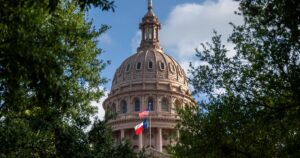

| Company | Value | Change | %Change |
|---|
Ameet Venkeshwar, CBO of LoanTap, highlighted that lower inflationary pressures could provide immediate relief to households by reducing the financial burden on essentials like food. “Lower inflation provides relief to families by reducing the strain on daily expenditures, particularly on essentials like food, which often constitutes a significant portion of household spending,” he said. This moderation in inflation could improve disposable income, which, in turn, might support savings, especially in an environment where consumer confidence and spending potential are closely linked.
However, Manoranjan Sharma, Chief Economist at Infomerics Ratings, presented a more cautious outlook, emphasising that while the fall in inflation could provide some respite, it is unlikely to immediately boost household savings. “The household savings have been declining on a secular basis due to factors like the inflationary spiral, unattractive deposit rates, and shifting investment preferences towards mutual funds, stocks, real estate, and gold,” Sharma explained.
He also pointed out that inflation reduction, coupled with expected measures like tax concessions in the upcoming Union Budget and a possible Repo Rate cut by the RBI, might give households some breathing room, potentially increasing consumption and expenditure. “These measures will raise disposable income to a limited extent and provide a measure of relief to the common man,” he added.
Echoing a similar sentiment, Animesh Hardia, Senior Vice President, Quantitative Research at 1 Finance, agreed that the decline in inflation is a welcome sign but stressed the broader implications of inflation on various income groups. “While food inflation remains high at 8.39%, the overall inflation trend is within the RBI’s comfort zone, which helps wage earners manage daily expenses better. It also enables middle-class families to maintain their savings rates,” Hardia noted.
He also pointed out that as inflation moves closer to the RBI’s 4% target in 2025, it could open the door for monetary easing, which might reduce borrowing costs and encourage business investment, potentially creating more opportunities for households to boost their income.
Also Read : India’s December retail inflation eases to 5.22%, food inflation at 8.39%



